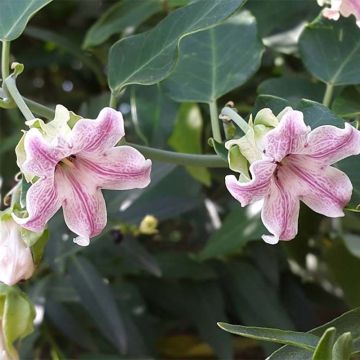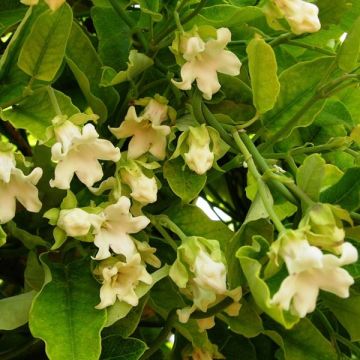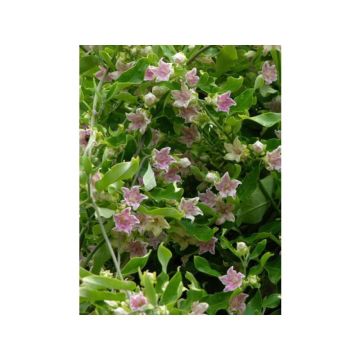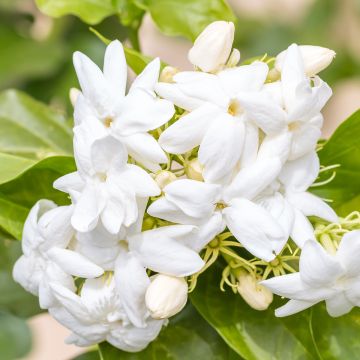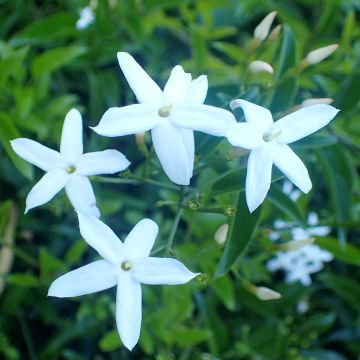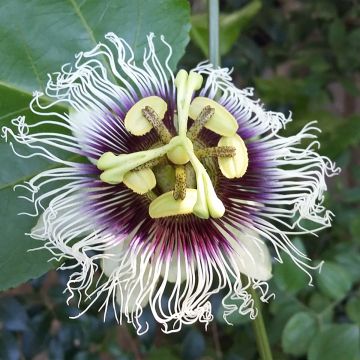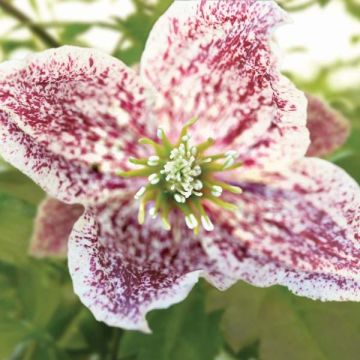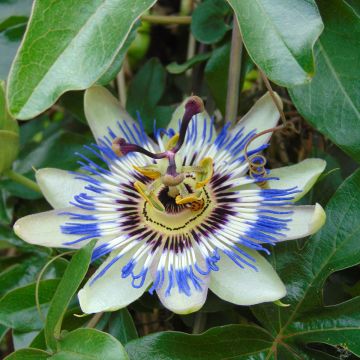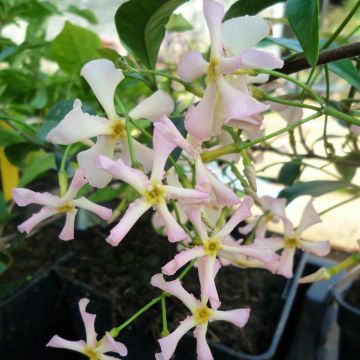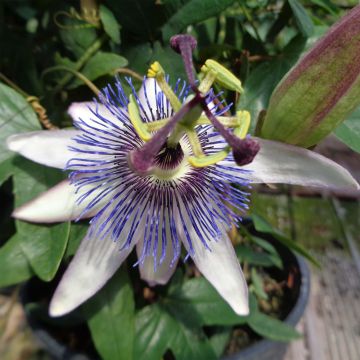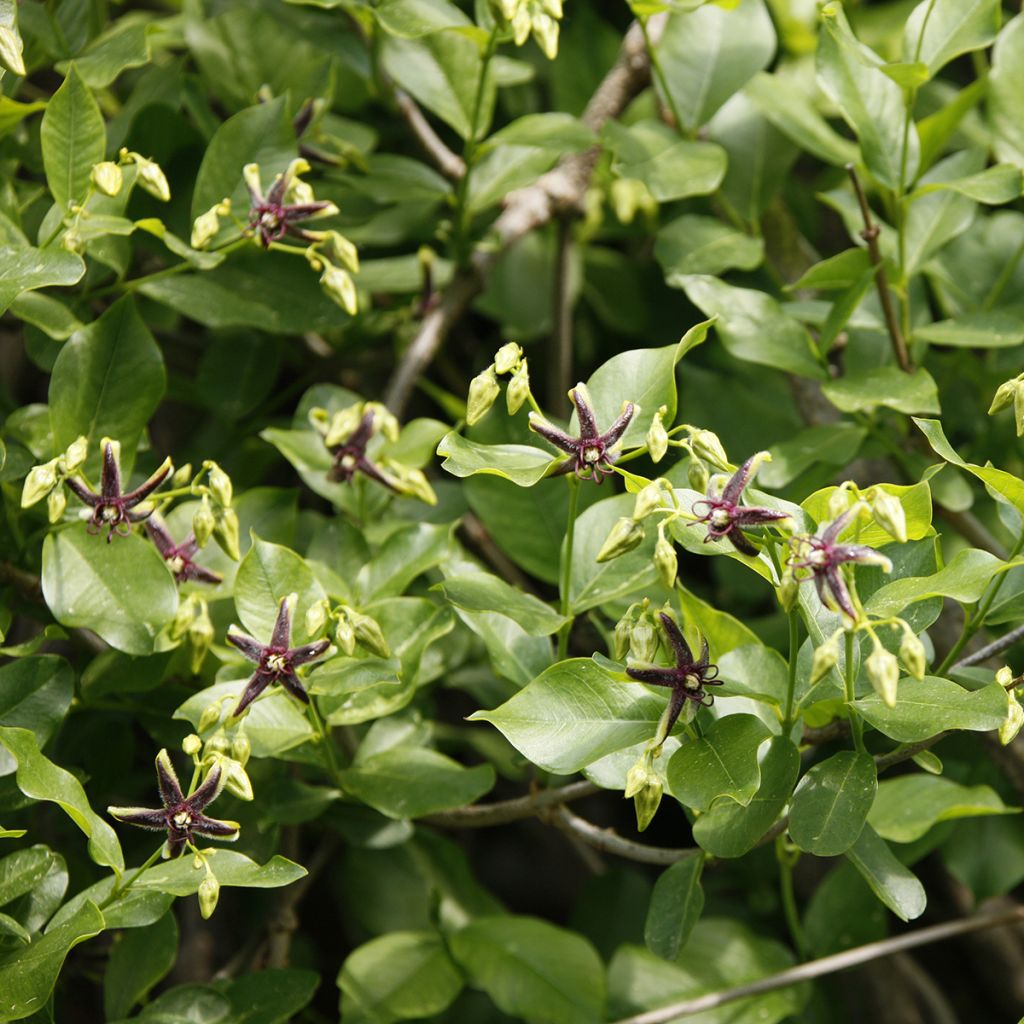

Periploca graeca - Silkvine
Periploca graeca - Silkvine
Periploca graeca
Silkvine
Invasive exotic plant causing havoc in the south of France!! Why sell such a plant when natural area managers are trying everything to get rid of it?? It has a very high resistance and can multiply very quickly, smothering the surrounding vegetation like a deadly green wave...
Anaïs, 17/10/2024
Special offer!
Receive a €20 voucher for any order over €90 (excluding delivery costs, credit notes, and plastic-free options)!
1- Add your favorite plants to your cart.
2- Once you have reached €90, confirm your order (you can even choose the delivery date!).
3- As soon as your order is shipped, you will receive an email containing your voucher code, valid for 3 months (90 days).
Your voucher is unique and can only be used once, for any order with a minimum value of €20, excluding delivery costs.
Can be combined with other current offers, non-divisible and non-refundable.
Home or relay delivery (depending on size and destination)
Schedule delivery date,
and select date in basket
This plant carries a 6 months recovery warranty
More information
We guarantee the quality of our plants for a full growing cycle, and will replace at our expense any plant that fails to recover under normal climatic and planting conditions.
Would this plant suit my garden?
Set up your Plantfit profile →
Description
The Periploca graeca, also known as the Greek silkvine, is a deciduous vigorous vine capable of climbing tall trees. Its strength has earned it the nickname tree strangler, although this term is commonly used for a very different species called Celastrus scandens. While the Greek silkvine may not be the most decorative climber, it is useful for providing shade to a pergola in just a few years, while allowing for a clean start in the winter. Bees appreciate its clusters of small star-shaped green and purple flowers, which may be modest in appearance but are plentiful. It is a plant highly resistant to cold winters and dry summers, making it ideal for a Mediterranean garden without irrigation or coastal areas.
The Periploca graeca is a climbing shrub with voluble stems from the apocynaceae family, formerly classified in the Asclepiadaceae family. It is related to Araujia, oleander, and Mandevilla laxa. It is native to the Mediterranean and Eastern Europe, Asia Minor, and the Middle East, and is found in Greece, Italy, Iraq, Turkey, and the Caucasus. Plants in this botanical family have the common characteristic of secreting a visible white latex when their stems are broken. This species has become naturalised along rivers, where it competes with other plants on the water's edge. However, it is much easier to control in gardens, away from wet environments. Once well-established in fairly deep soil, it withstands dry summers, and its stump can withstand -18°C.
Greek silkvine shows very rapid growth and can produce shoots from its stump. Its long voluble stems lignify over time and can exceed 15m in length. They are numerous and intertwine to form dense bushes over large areas. The leaves appear in spring and fall in autumn. They are lanceolate, shiny green with lighter veins, and can measure up to 10cm long. Flowering occurs from April to June, depending on the region. It takes the form of corymbs of small hairy star-shaped flowers. Each flower consists of a calyx with 5 violet segments bordered in green and a discreet corolla with 5 dark pink petals. At the heart of the flower, there are 5 bristles, 5 stamens with velvety filaments, and a ribbed style. After pollination, paired fruits are formed, with two twin pods joined at both ends. They contain numerous flat seeds embedded in bristles.
You can use Periploca graeca to cover a pergola, a trellis, a carport, a fence, an unsightly building, or even an old tree. Maintenance is limited to watering during the first few months and annual pruning once the plant has covered the desired area. Some ideas for combining it in a large garden include Lonicera similis var. delavayi, Wisteria sinensis, or Campsis capreolata.
Disclaimer:
To prevent its spread into the wild, particularly around damp areas, it is advisable to remove the fruit before it ripens.
Report an error about the product description
Plant habit
Flowering
Foliage
Botanical data
Periploca
graeca
Apocynaceae (Asclepiadaceae)
Silkvine
Southern Europe
Other Araujia
View all →Planting and care
Periploca graeca is a low-maintenance plant, but it prefers fairly deep and fertile soils. It tolerates limestone well. Once well-rooted, it withstands summer drought well. We strongly advise against planting it near wet areas. On the other hand, this liana is quite easy to contain in Mediterranean gardens without watering, which are very dry in summer.
Remove the fruits before they dry to prevent seed dispersal. Prune if necessary to prevent the plant from becoming too invasive by removing disorderly stems and branches throughout the year.
Planting period
Intended location
Care
-
, onOrder confirmed
Reply from on Promesse de fleurs
Similar products
Haven't found what you were looking for?
Hardiness is the lowest winter temperature a plant can endure without suffering serious damage or even dying. However, hardiness is affected by location (a sheltered area, such as a patio), protection (winter cover) and soil type (hardiness is improved by well-drained soil).

Photo Sharing Terms & Conditions
In order to encourage gardeners to interact and share their experiences, Promesse de fleurs offers various media enabling content to be uploaded onto its Site - in particular via the ‘Photo sharing’ module.
The User agrees to refrain from:
- Posting any content that is illegal, prejudicial, insulting, racist, inciteful to hatred, revisionist, contrary to public decency, that infringes on privacy or on the privacy rights of third parties, in particular the publicity rights of persons and goods, intellectual property rights, or the right to privacy.
- Submitting content on behalf of a third party;
- Impersonate the identity of a third party and/or publish any personal information about a third party;
In general, the User undertakes to refrain from any unethical behaviour.
All Content (in particular text, comments, files, images, photos, videos, creative works, etc.), which may be subject to property or intellectual property rights, image or other private rights, shall remain the property of the User, subject to the limited rights granted by the terms of the licence granted by Promesse de fleurs as stated below. Users are at liberty to publish or not to publish such Content on the Site, notably via the ‘Photo Sharing’ facility, and accept that this Content shall be made public and freely accessible, notably on the Internet.
Users further acknowledge, undertake to have ,and guarantee that they hold all necessary rights and permissions to publish such material on the Site, in particular with regard to the legislation in force pertaining to any privacy, property, intellectual property, image, or contractual rights, or rights of any other nature. By publishing such Content on the Site, Users acknowledge accepting full liability as publishers of the Content within the meaning of the law, and grant Promesse de fleurs, free of charge, an inclusive, worldwide licence for the said Content for the entire duration of its publication, including all reproduction, representation, up/downloading, displaying, performing, transmission, and storage rights.
Users also grant permission for their name to be linked to the Content and accept that this link may not always be made available.
By engaging in posting material, Users consent to their Content becoming automatically accessible on the Internet, in particular on other sites and/or blogs and/or web pages of the Promesse de fleurs site, including in particular social pages and the Promesse de fleurs catalogue.
Users may secure the removal of entrusted content free of charge by issuing a simple request via our contact form.
The flowering period indicated on our website applies to countries and regions located in USDA zone 8 (France, the United Kingdom, Ireland, the Netherlands, etc.)
It will vary according to where you live:
- In zones 9 to 10 (Italy, Spain, Greece, etc.), flowering will occur about 2 to 4 weeks earlier.
- In zones 6 to 7 (Germany, Poland, Slovenia, and lower mountainous regions), flowering will be delayed by 2 to 3 weeks.
- In zone 5 (Central Europe, Scandinavia), blooming will be delayed by 3 to 5 weeks.
In temperate climates, pruning of spring-flowering shrubs (forsythia, spireas, etc.) should be done just after flowering.
Pruning of summer-flowering shrubs (Indian Lilac, Perovskia, etc.) can be done in winter or spring.
In cold regions as well as with frost-sensitive plants, avoid pruning too early when severe frosts may still occur.
The planting period indicated on our website applies to countries and regions located in USDA zone 8 (France, United Kingdom, Ireland, Netherlands).
It will vary according to where you live:
- In Mediterranean zones (Marseille, Madrid, Milan, etc.), autumn and winter are the best planting periods.
- In continental zones (Strasbourg, Munich, Vienna, etc.), delay planting by 2 to 3 weeks in spring and bring it forward by 2 to 4 weeks in autumn.
- In mountainous regions (the Alps, Pyrenees, Carpathians, etc.), it is best to plant in late spring (May-June) or late summer (August-September).
The harvesting period indicated on our website applies to countries and regions in USDA zone 8 (France, England, Ireland, the Netherlands).
In colder areas (Scandinavia, Poland, Austria...) fruit and vegetable harvests are likely to be delayed by 3-4 weeks.
In warmer areas (Italy, Spain, Greece, etc.), harvesting will probably take place earlier, depending on weather conditions.
The sowing periods indicated on our website apply to countries and regions within USDA Zone 8 (France, UK, Ireland, Netherlands).
In colder areas (Scandinavia, Poland, Austria...), delay any outdoor sowing by 3-4 weeks, or sow under glass.
In warmer climes (Italy, Spain, Greece, etc.), bring outdoor sowing forward by a few weeks.






























